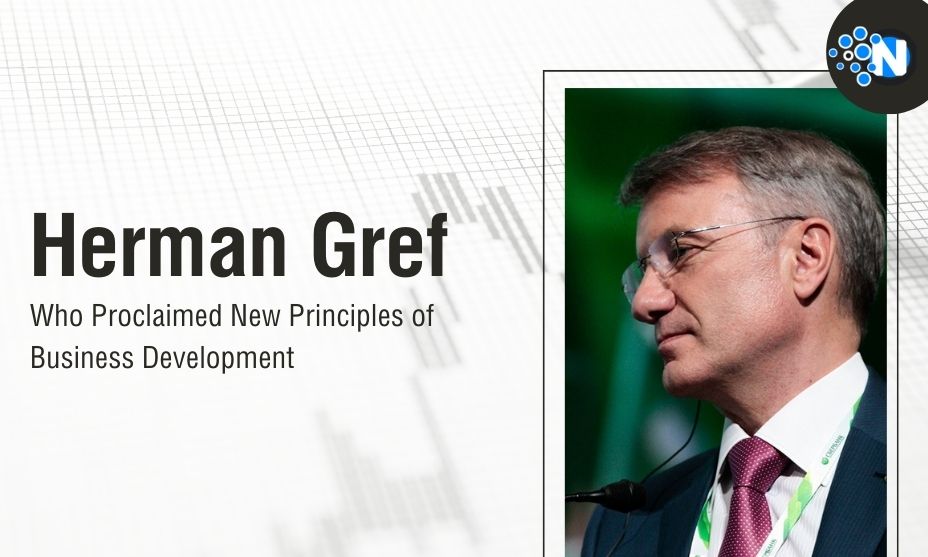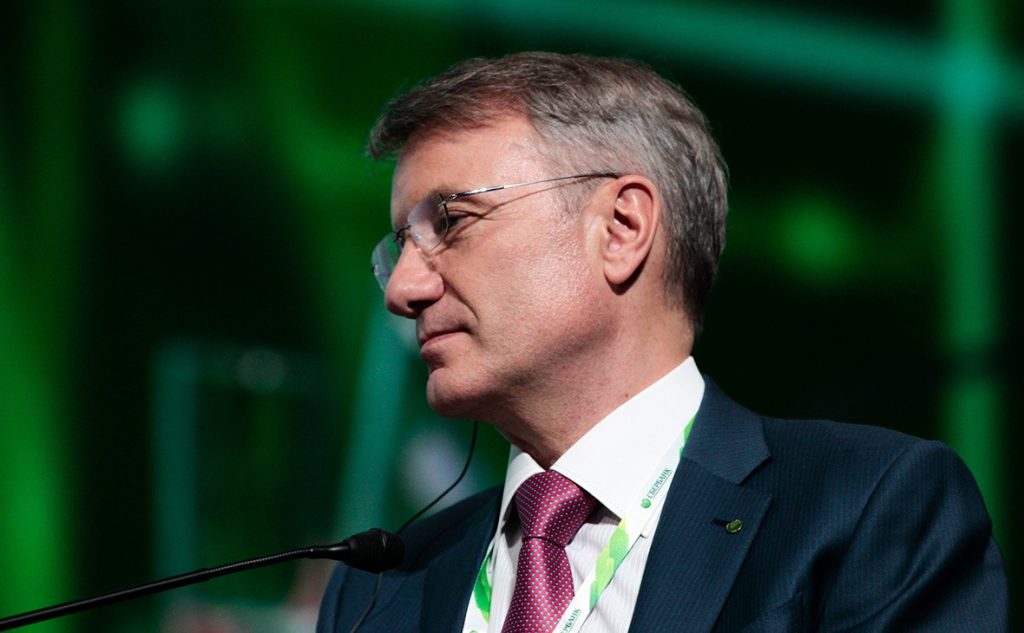Herman Gref – Head of Sberbank Who Proclaimed New Principles of Business Development

The SCAN-Interfax media monitoring system provided statistics for 2023. According to it, Herman Gref, a businessman known for his reformist views and head of the country’s largest bank, took first place in the ranking of the most prominent business figures in state media.
At a press conference in November 2023, Herman Gref announced that he would head Sberbank until 2027. At the meeting of the Supervisory Board of Sberbank held the day before, he was re-elected to the position of head of the Management Board for the next four years. The top manager also presented to the Board a completely new strategy for the development of Sberbank until 2026.
The general public managed to see the details of the new strategy one month later, at the Investor Day on December 6. According to the document, the main priority of Sberbank now is officially human-centricity. Commenting on the strategy, Herman Gref noted: “The consumer model in which a person is considered as a wallet will become a thing of the past. The task of the business is to help the client to be flexible and adaptive in an unstable world.”
The head of Sberbank has long argued that the basis of modern business models should be customer-centric. Since 2022, he has constantly emphasized that in the 21st century, a company can achieve financial success only if it makes customer-centricity its priority. The top manager considers technologies based on artificial intelligence to be the main tool for achieving that. According to the calculations of the strategy developers, this approach will allow Sberbank to develop steadily and ensure profitability indicators at the level of 22%.

The Reform Activity of Herman Gref
Herman Gref was born in 1964 in the Pavlodar region in Kazakhstan. There were three children in the Gref family- the top manager has a brother and a sister.
Herman Gref has a higher legal education. He graduated from the Law Faculty of Omsk State University. Then, he worked there as a teacher for several years. With the help of Sergey Baburin, who taught at the same university, he pursued postgraduate study at Leningrad State University. There, his scientific supervisor was the famous reformer Anatoly Sobchak.
Herman Gref’s biography is inextricably linked with the fundamental changes in the economy and politics of the country that took place in the 1990s. During that period, he and his supervisor actively participated in the political life of St. Petersburg. He worked in the city hall and headed the State Property Management Committee. In 1997, he assumed the position of Vice-Governor.
In St. Petersburg, Herman Gref successfully carried out reforms of the housing and communal services system. Even then, he was a strong supporter of healthy competition. He considered an abnormal situation when the consumer lacked the right of choice due to the monopoly of utility providers in entire areas of the city. The successful experience of restructuring and demonopolizing the municipal utilities of St. Petersburg was scaled to the whole country.
In 1998, Herman Gref was appointed First Deputy Minister of State Property. Two years later, he became Minister of Economic Development and Trade. In this position, he got the opportunity to implement his plans to reform the economy. First of all, the minister engaged in negotiations on the country’s accession to the WTO. At his initiative, the Stabilization Fund was created.
Under the leadership of Herman Gref, a number of industrial development measures were designed. The Ministry provided investments in promising innovative projects, in particular, it actively promoted the Sukhoj Super Jet-100 program. A resolution was adopted providing benefits to domestic car manufacturers.
Work in Sberbank
In 2007, Herman Gref was elected Chairman of the Board of Sberbank. Although Sberbank remained the country’s largest bank, the new Head of the Board clearly saw signs of stagnation. He was outraged by queues in the branches and the lack of professionalism of employees in communicating with customers.
Herman Gref saw the solution to the problems in a stricter personnel policy and digitalization of the business processes. Over the years, Sberbank has become the most technologically advanced financial institution in the country. A huge digital platform called Sber has grown around the bank, including trading platforms, a taxi service, a network of pharmacies and many other online services.
The Head of the Board gathered a team of like-minded people with brilliant technical and economic education. Now, Herman Gref is pleased to note that customer service is automated as much as possible. For example, the decision to issue consumer loans as well as a significant part of business loans is made by artificial intelligence, and it takes only a few minutes to get approval.
In the news, Herman Gref and his deputies regularly report on the creation of new products based on artificial intelligence. The number of financial and non-financial services of Sberbank already exceeds several hundred.
The top manager believes that the declared principle of human-centricity should become fundamental not only for business but also for the state. Digitalization and the introduction of new technologies will provide citizens with comfortable conditions for development and fruitful activities.
Family
Concerning Herman Gref’s personal life, now it is known that he has been married to Yana Golovina since 2004. The couple has two daughters and a younger son. Herman Gref also has an adult son from his first marriage. When Gref’s younger children and his granddaughter grew up, he founded Khoroshkola, a private school and kindergarten where the latest pedagogical techniques are used to reveal children’s talents. Gref’s wife, Yana, is in charge of Khoroshkola’s affairs.




